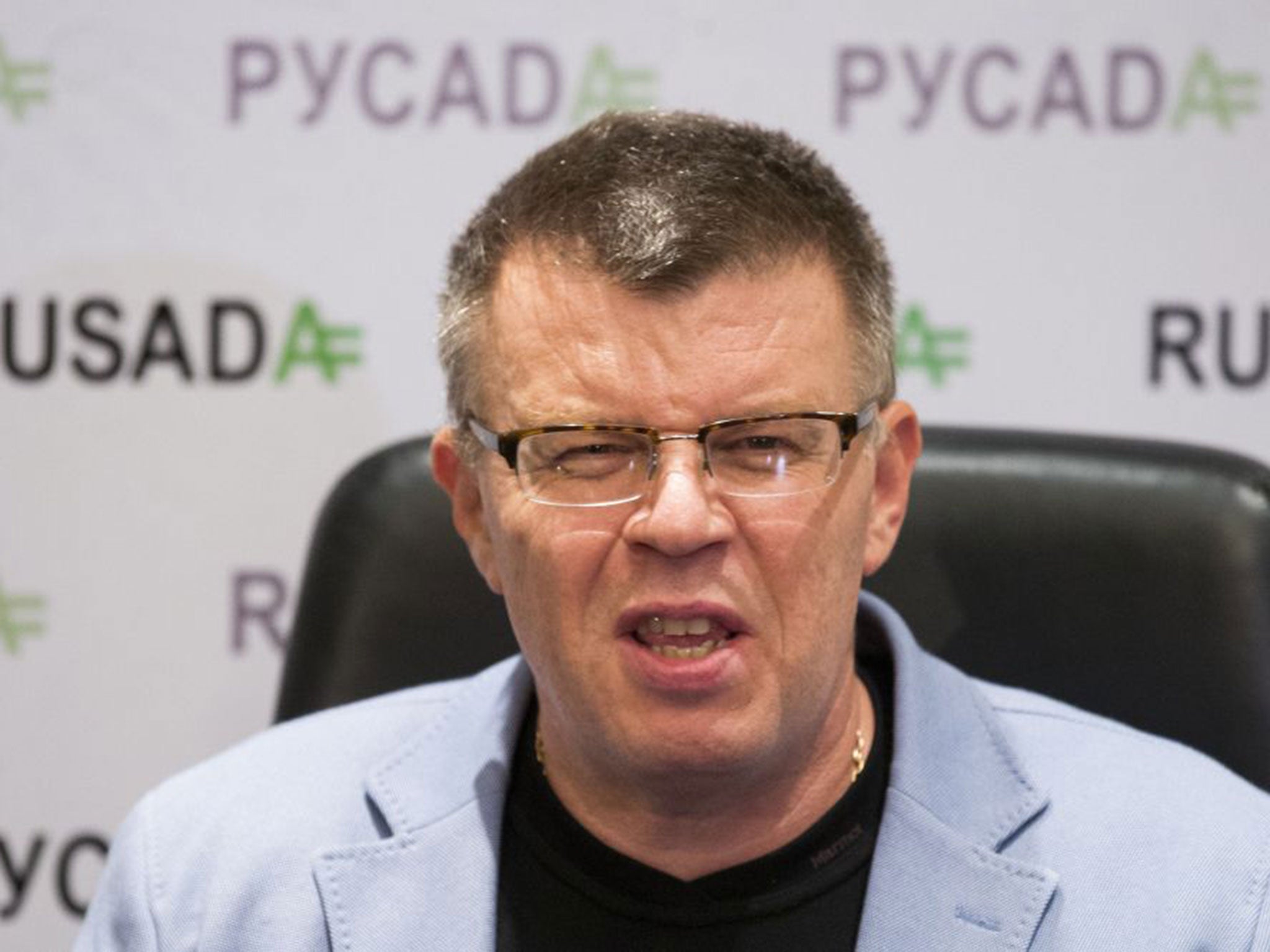Nikita Kamaev: Dead Russia anti-doping chief 'was to reveal all'
Russia is currently banned from track and field competition

Your support helps us to tell the story
From reproductive rights to climate change to Big Tech, The Independent is on the ground when the story is developing. Whether it's investigating the financials of Elon Musk's pro-Trump PAC or producing our latest documentary, 'The A Word', which shines a light on the American women fighting for reproductive rights, we know how important it is to parse out the facts from the messaging.
At such a critical moment in US history, we need reporters on the ground. Your donation allows us to keep sending journalists to speak to both sides of the story.
The Independent is trusted by Americans across the entire political spectrum. And unlike many other quality news outlets, we choose not to lock Americans out of our reporting and analysis with paywalls. We believe quality journalism should be available to everyone, paid for by those who can afford it.
Your support makes all the difference.The former executive director of the Russian anti-doping agency (Rusada) who suddenly died of a heart attack eight days ago, had planned to write a book revealing “the true story of doping in Russia” with information covering the last three decades since he began work for a “secret lab”.
The claims were made in The Sunday Times, which also alleged that Nikita Kamaev had unpublished “actual documents, including confidential sources, regarding the development of performance-enhancing drugs and medicine in sport,” plus communications with the Russian Sports Ministry and International Olympic Committee.
Russia is currently banned from track and field competition, and will miss out on Olympic athletics competitions in August if it is not reinstated, after a World Anti-Doping Agency (Wada) commission report accused Rusada of helping cover up doping by top Russian athletes as part of a systematic, state-sponsored programme of drug use. Kamaev resigned from Rusada in December.
The Sunday Times’ David Walsh reported that Kamaev – who died on 14 February, aged 52 – wrote to him in November offering to reveal the information three days after Wada declared Rusada non-compliant.
The mention of a “secret lab” echoes a charge in the Wada report that Russia operated a concealed site for screening Russian drug test samples before they officially entered the Rusada system.
Join our commenting forum
Join thought-provoking conversations, follow other Independent readers and see their replies
Comments